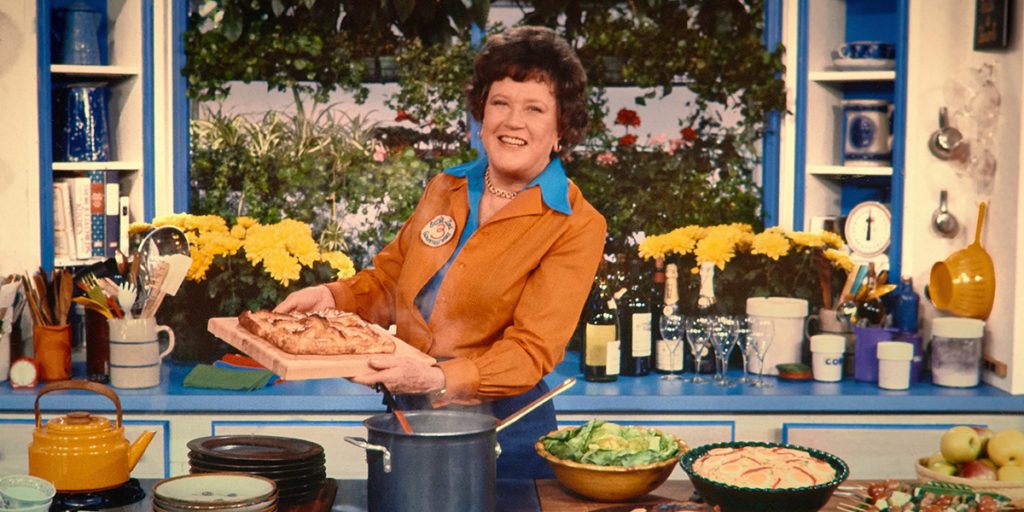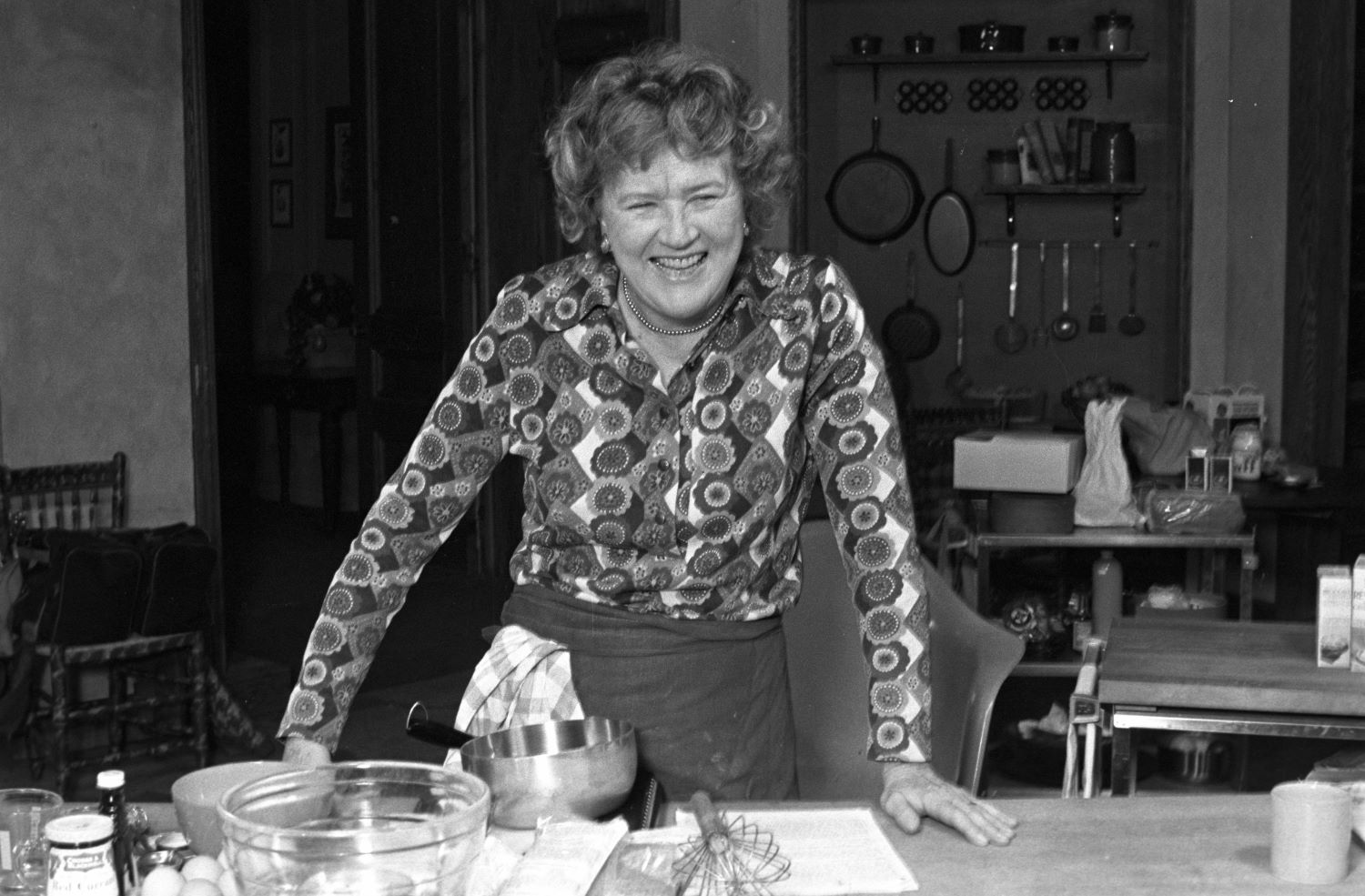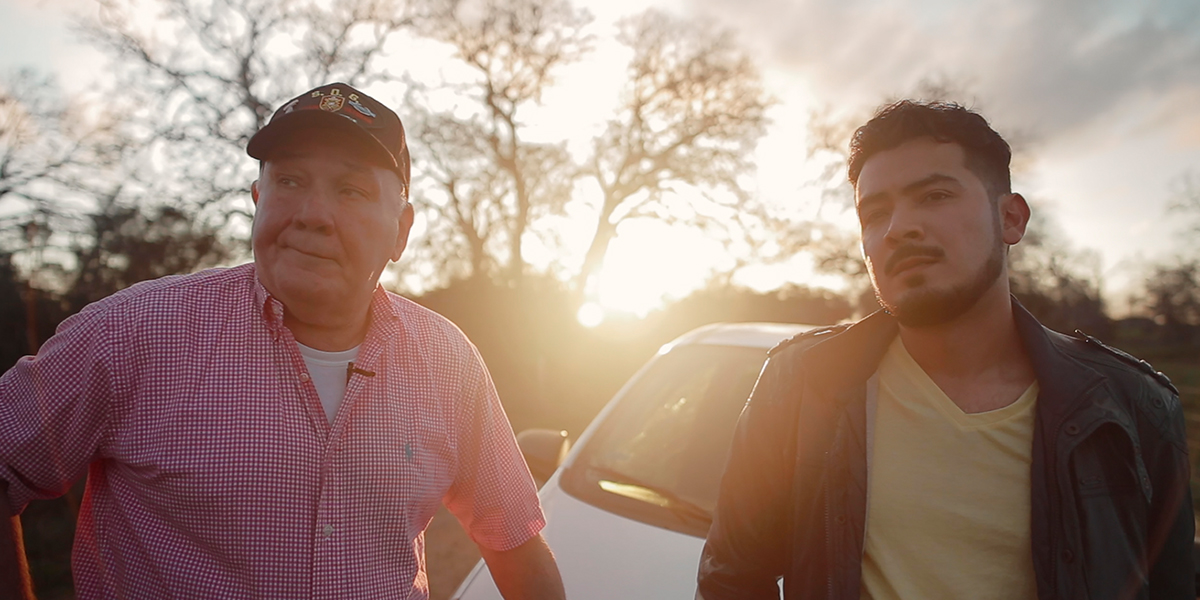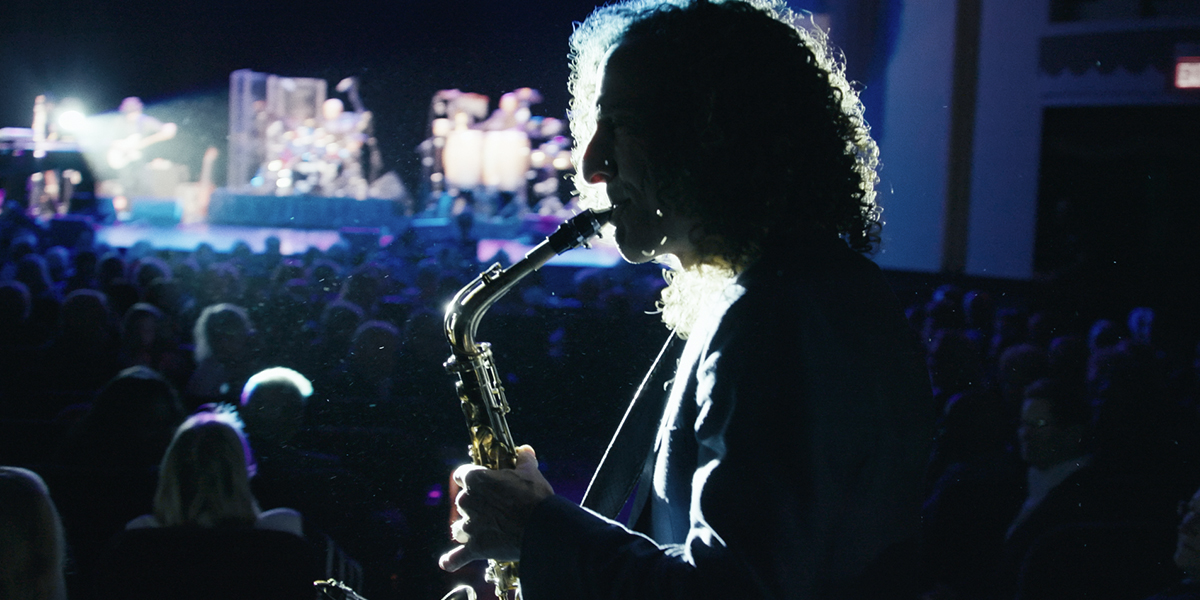Revolutionizing both cookbooks and television throughout her prolific career, Julia Child is one of the most beloved and respected pop culture icons of all time. This certainly makes directing a film about her a tall order–almost as tall as Julia herself. But if there was anyone up to the task, it would be creative partners Julie Cohen and Betsy West. Their last film, the wildly successful, Oscar-nominated RBG, chronicles the career of U.S. Supreme Court judge Ruth Bader Ginsburg. So they know a thing or two about documenting the lives of powerful, interesting women.
Now, more than ever, there is a hunger for stories about women. While there are endless subjects to choose from, Julia Child was an obvious option for the filmmakers. “In the case of Julia, we pretty quickly decided to pursue this story because we realized that not only was it a fascinating one with a love story and a great character, Julia was really someone who changed our culture. She had a profound impact on how we eat, how we think about food, and also, television. You especially didn’t see women of Julia’s age being themselves, being authentic, or enjoying food. Julia’s instant success made television executives open their eyes. So we felt like it would be worth spending 90 minutes with this person,” explains West.
Perhaps embarrassingly, as a millennial, I didn’t know much about Julia Child until Nora Ephron’s delightful 2009 film, Julie & Julia. Immediately after watching it, I walked into the nearest bookstore, bought Child’s autobiography My Life in France (co-written by Alex Prud’homme), devoured it, and thus started my enduring love affair with the famous chef. But for women of an older generation, Julia Child was an important, ubiquitous presence. Her two-volume cookbook, Mastering the Art of French Cooking, has sold over 1.5 million copies. “I’m a child of the bad food generation: tuna fish casserole, jello salads, canned mushroom soup, and the like. I’m from New England and certainly, when Julia came on television, I was aware of this character. But it wasn’t until I was coming of age in the ‘70s that my sister and I started cooking in a different way than our mother. We were influenced by this revolution that Julia Child kicked off,” says West.
Cohen continues, “We have similar points of orientation on this. My mom was a bad cook, which was pretty common in our childhood. She hated the kitchen and didn’t want anything to do with it. I actually became serious about food and cooking as a kid and later started up a little catering business. I was part of a generation that was really influenced by Julia Child. For me, the concept that cooking is cool and fun is owed to Julia Child.”
In terms of career, Child came to cooking and then television much later in life, writing her cookbook and first appearing on television in her 50s. “It’s pretty extraordinary. She threw herself into this new discovery, which was so much fun to document,” says West. Child was radical in that way. “She wasn’t necessarily out to change the world. She was just doing her thing and making her way for herself, having incredible experiences and wanting to share them with others,” adds Cohen.
Between Child’s prolific letter writing and countless hours of television appearances, there was never a lack of source material for the documentary. “We dug up footage from her shows along with some behind-the-scenes footage. The Julia Child Archive at Harvard has all of the letters and the diaries, and also the photographs that Paul [Child] took. One of the things we did was to ask our archive producers to make a chart and categorize the different excerpts, like Julia being funny, Julia making a mistake, Julia teaching. All the little moments that were there to help our editor in crafting the story of Julia’s evolution as a TV personality,” says West.

Collaborating was a huge part of Child’s work from co-authoring books to the production of her hit television shows. Cohen and West are longtime collaborators, having done several projects together. “I approach collaboration with gratitude. I’m very happy to have a partner when you’re taking on a big, daunting project. It’s a gift to have someone to bounce ideas off of; someone you trust. We love it! Our editor, Carla Gutierrez, is also amazing,” expresses West. “We tend to approach it in a pretty micro way where each of us is working on various sections. Betsy, Carla, and I are all obsessing over and responsible for different aspects of the project. Once we’re happy with the shape that’s taking form, we show it to the others and go from there,” adds Cohen.
After watching Julia, I am petitioning for the acronym ‘WWJD?’ to officially change to “What Would Julia Do?”. And after making the film, West and Cohen are both taking away a few valuable lessons from their larger-than-life subject. West starts, “She was someone who, throughout her life, didn’t go down the expected road. She left Smith College and defied her family’s expectation that she was going to marry a rich banker, go off to the country club, produce some children, and as she says, probably become an alcoholic. And at every step, she was willing to learn and always open to change.”
“I am coming away with her joie-de-vivre energy that I think we all love. It’s pretty apparent from her television persona that she always had a great time. She just threw herself into things that she loved: her career, food, and even her relationships. Julia maintained that sense of joy even into her 90s,” adds Cohen.
Julia premieres at the Toronto International Film Festival on September 12 and opens in theatres this fall beginning Nov. 26 at Hot Docs Ted Rogers Cinema.











